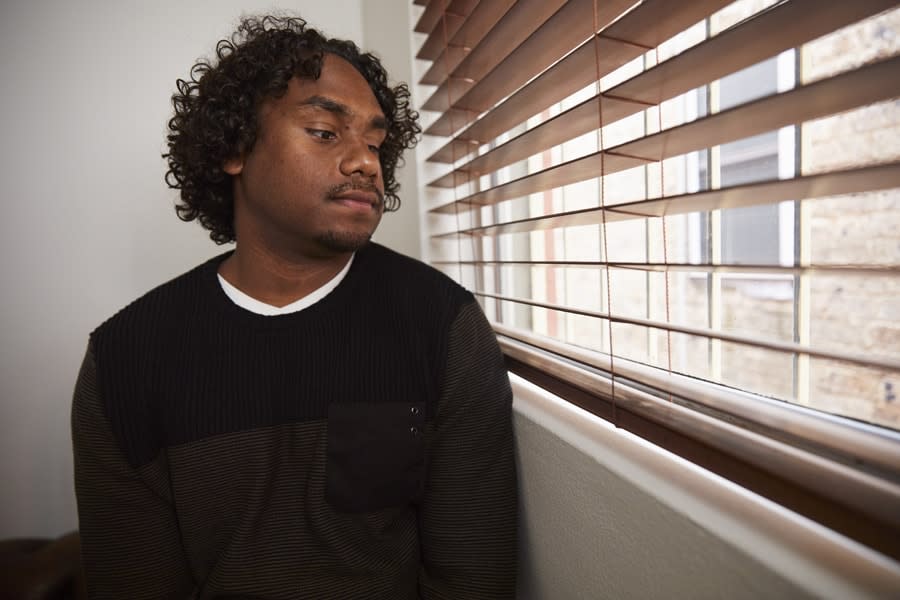Fear of being in certain spaces (which is referred to by clinicians as agoraphobia) could clearly have an isolating impact on your life. But can extended periods of loneliness also be a risk factor for this condition? In other words, can isolation cause agoraphobia?
What Is Agoraphobia?
Agoraphobia is a type of anxiety disorder that is characterized by an intense, overwhelming fear of being in locations where escape might be impossible, or where assistance may not be accessible if you are injured, embarrasses yourself, or have a panic attack.
As established in the fifth edition of the Diagnostic and Statistical Manual of Mental Disorders (DSM-5), the primary criteria for a diagnosis of agoraphobia is having marked anxiety or fear related to being in two or more of the following locations or situations:
- Cars, buses, planes, trains, or other types of public transportation
- Parking lots, open-air markets, or other open spaces
- Stores, theaters, or other enclosed spaces
- Crowds or lines of people
- Outside your house by yourself
Additional criteria for this diagnosis include:
- Whenever you are in or thinking about these situations, you always (or almost always) experience considerable fear or worry.
- You change your behaviors in order to avoid the locations or situations that prompt the onset of your symptoms.
- Your fear is excessive and disproportionate to any actual threat or risk.
- The symptoms of agoraphobia are so severe that they impair your ability to function in school, at work, or in other important parts of your life.
- These symptoms have persisted for a period of at least six months.
Can Isolation Cause Agoraphobia?
Here’s what we have established thus far: Agoraphobia can be a source of profound psychological distress, to the point that it has a disruptive impact on how you live your life and interact with others.
Here’s what we haven’t yet discussed: Why some people develop this condition while others don’t. Can isolation cause agoraphobia, or are other risk factors responsible?
As is so often the case when discussing reasons why some people have certain mental health disorders, experts have not identified one sole cause of agoraphobia. Instead, several reputable sources have cited a variety of genetic, temperamental, and environmental risk factors, such as:
- Losing a parent through death or separation during childhood
- Growing up with emotionally distant or overprotective parents
- Having a close relative who also has agoraphobia
- Family history of anxiety disorders
- Personal history of other mental health conditions, especially other anxiety disorders, depression, and eating disorders
- Certain genetic variations
- Having an inhibited or neurotic disposition
- Being attacked, mugged, or otherwise assaulted
- Going through a stressful life change, such as divorce, job loss, or the death of a loved one
- Substance abuse and addiction
So, can isolation cause agoraphobia?
While isolation is not typically listed among the more common risk factors for this condition, some experts have observed that the social distancing requirements and related stress of the COVID-19 pandemic may have contributed to rising anxiety rates, which could include additional cases of agoraphobia.
In other words, isolation alone does not appear to have an outsized influence on the likelihood that a person will develop agoraphobia. However, extended periods of enforced isolation and an accompanying sense of anxiety related to leaving the house or interacting with others may raise a person’s risk of this disorder.
Is Agoraphobia Common?
Agoraphobia is not a particularly common mental health disorder. However, in a nation as large as the United States, even rare conditions can affect significant numbers of people.
Here’s what the National Institute of Mental Health has reported about the prevalence and impact of agoraphobia:
- In the U.S., the estimated lifetime rate of agoraphobia among adults ages 18 and above is 1.3%, and the past-year prevalence among the same age group is 0.9%.
- With the U.S. population currently including an estimated 258.3 million adults, this means that about 3.4 million will develop agoraphobia over the course of their lifetime, and about 2.3 million are currently experiencing symptoms.
- Among adults who had agoraphobia in the previous 12 months, 40.6% were seriously impaired and 30.7% were moderately impaired, as scored on the Sheehan Disability Scale.
To underscore the potential severity of agoraphobia, the DSM-5 reports that more than one-third of people who have this disorder are “completely homebound and unable to work.”
How Is Agoraphobia Treated?
Treatment for agoraphobia often involves a combination of prescription medication, education, and therapy.
There aren’t any medications that have been specifically developed to treat agoraphobia, but certain antidepressants or anti-anxiety medications have proved to be helpful for some patients. Doctors who incorporate medication into agoraphobia treatment typically prescribe selective serotonin reuptake inhibitors (SSRIs) or benzodiazepines.
The therapeutic and educational components of agoraphobia treatment often focus on goals such as:
- Identifying triggers, which are specific circumstances that can cause the onset of symptoms
- Learning to better manage symptoms that aren’t alleviated by medication
- Replacing self-defeating thought and behavior patterns with healthier ways of thinking and acting
- Developing more effective self-soothing techniques
- Learning how to better manage stress and pressure
- Becoming an informed and empowered self-advocate
To help patients accomplish these and other relevant goals, treatment professionals may employ a variety of therapeutic approaches, including cognitive-behavioral therapy (CBT), dialectical behavior therapy (DBT), and exposure therapy.
No single technique or course of treatment will benefit every person who has agoraphobia. This is why it is so important to find a provider that will conduct a thorough assessment; talk to you about your strengths, needs, and goals; and develop a customized plan just for you.
Find Agoraphobia Treatment in Nashville
Arbor Wellness is a trusted provider of personalized care for adults whose lives have been disrupted by agoraphobia, other mental health concerns, and co-occurring substance use disorders (addictions).
Your options at our agoraphobia treatment center in Nashville, Tennessee, include residential care, a partial hospitalization program and an intensive outpatient program. We also offer specialized services for military veterans and young adults, as well as a vibrant alumni support program.
To learn more about how we can help you or a loved one, or to schedule a free assessment, please visit our Admissions page or call us today.

















